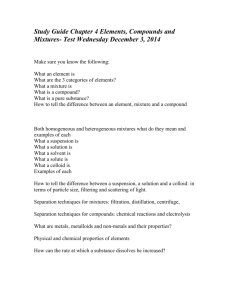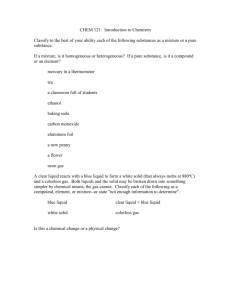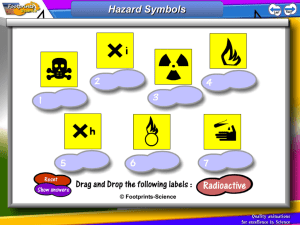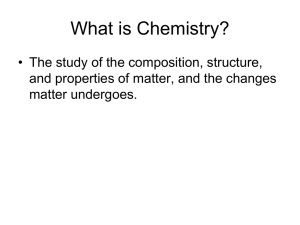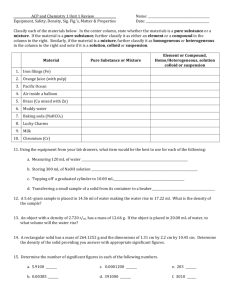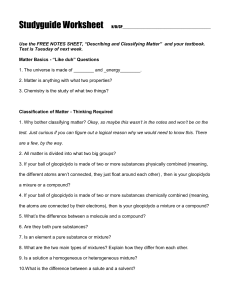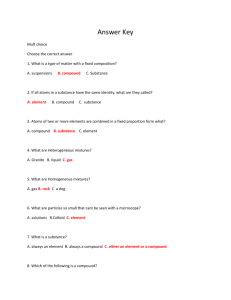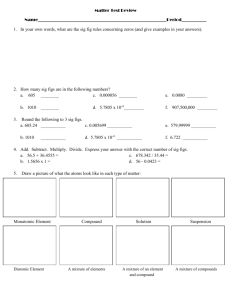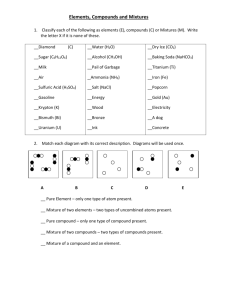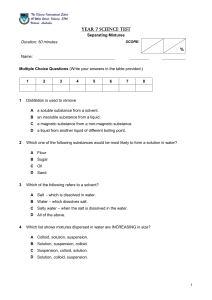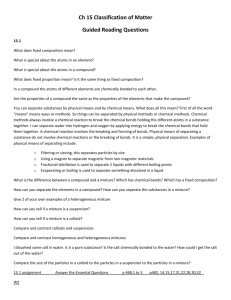Name
advertisement
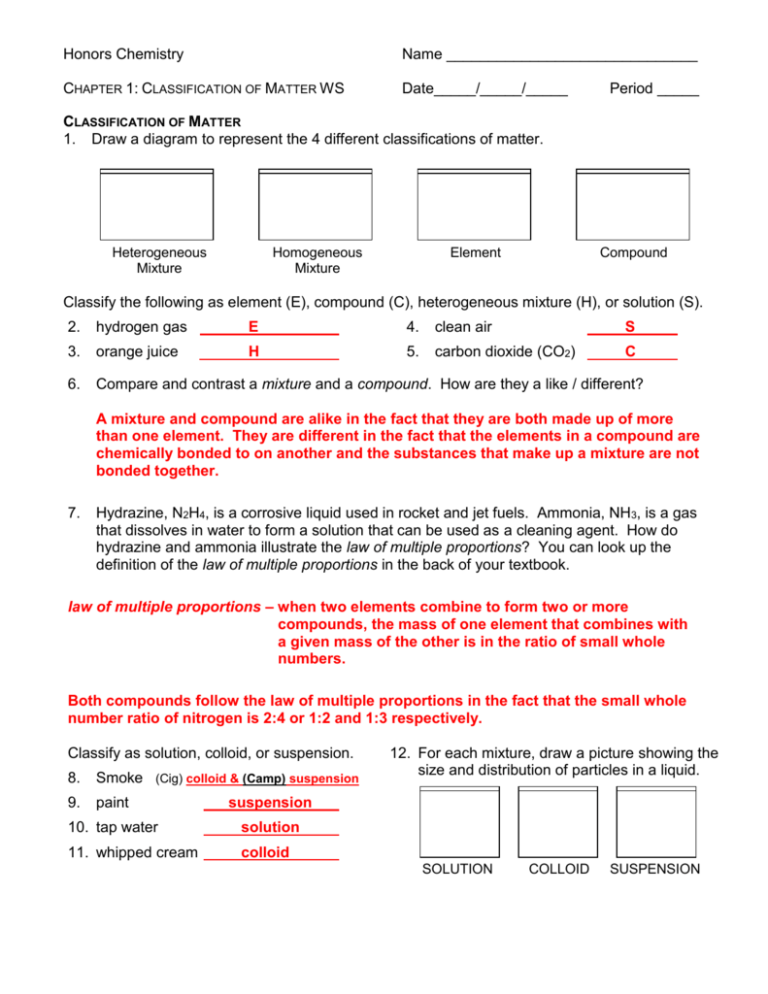
Honors Chemistry Name ______________________________ CHAPTER 1: CLASSIFICATION OF MATTER WS Date_____/_____/_____ Period _____ CLASSIFICATION OF MATTER 1. Draw a diagram to represent the 4 different classifications of matter. Heterogeneous Mixture Homogeneous Mixture Element Compound Classify the following as element (E), compound (C), heterogeneous mixture (H), or solution (S). 2. hydrogen gas E 4. clean air S 3. orange juice H 5. carbon dioxide (CO2) C 6. Compare and contrast a mixture and a compound. How are they a like / different? A mixture and compound are alike in the fact that they are both made up of more than one element. They are different in the fact that the elements in a compound are chemically bonded to on another and the substances that make up a mixture are not bonded together. 7. Hydrazine, N2H4, is a corrosive liquid used in rocket and jet fuels. Ammonia, NH3, is a gas that dissolves in water to form a solution that can be used as a cleaning agent. How do hydrazine and ammonia illustrate the law of multiple proportions? You can look up the definition of the law of multiple proportions in the back of your textbook. law of multiple proportions – when two elements combine to form two or more compounds, the mass of one element that combines with a given mass of the other is in the ratio of small whole numbers. Both compounds follow the law of multiple proportions in the fact that the small whole number ratio of nitrogen is 2:4 or 1:2 and 1:3 respectively. Classify as solution, colloid, or suspension. 8. Smoke (Cig) colloid & (Camp) suspension 9. paint suspension 10. tap water solution 11. whipped cream colloid 12. For each mixture, draw a picture showing the size and distribution of particles in a liquid. SOLUTION COLLOID SUSPENSION PROPERTIES & CHANGES IN MATTER Classify the following properties of matter as chemical (C) or physical (P). 13. flexible P 15. boils at 20C P 14. combustible C 16. low reactivity C Classify the following as chemical changes (C) or physical changes (P). 17. grapes fermenting C 18. copper melting P 19. recycling aluminum P 20. gasoline exploding C
